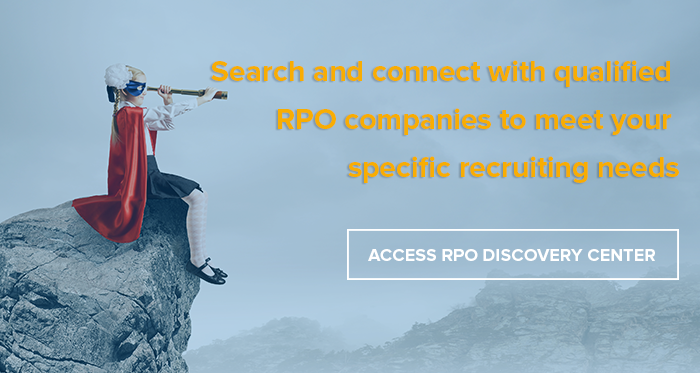 One of the many benefits of recruiting process outsourcing (RPO) is reducing the total fixed and variable cost associated with recruiting. But how much should a company invest in an RPO solution? We interviewed Cory Kruse, COO of Novotus, a Texas-based RPO provider, and asked him this question. Kruse told us "It depends". Like recruitment process outsourcing itself, the price reflects much more than services; it reflects the specific needs of the buyer and the involvement of the provider, among other things.
One of the many benefits of recruiting process outsourcing (RPO) is reducing the total fixed and variable cost associated with recruiting. But how much should a company invest in an RPO solution? We interviewed Cory Kruse, COO of Novotus, a Texas-based RPO provider, and asked him this question. Kruse told us "It depends". Like recruitment process outsourcing itself, the price reflects much more than services; it reflects the specific needs of the buyer and the involvement of the provider, among other things.
RPO Pricing Models
"[RPO pricing] depends on a number of things, but it costs less than typical talent acquisition," said Kruse. "Volume, geography, demographics/Labor pressure, complexity of the positions, and duration are all factors”.
“Several pricing models [for RPO] exist, but they are highly customized and depend on the scope of the engagement." Pricing models for RPO solutions include: project-based, transactional, partitioned, ongoing engagement. These pricing models consist of various RPO services, and differ from provider to provider. Kruse said that the standard RPO agreement lasts one to three years,
“Additionally, since different parts of the recruitment process have different impacts on enterprise performance, value over cost is becoming increasingly more prevalent in RPO pricing.”
Selecting an RPO Provider
Kruse warned that some providers will make their sales pitch on price, but won't necessarily provide the expected level of delivery. As RPO is an emerging industry with no set standards yet, those looking to purchase RPO services need to look at more than pricing when ultimately choosing an RPO provider.
"[RPO pricing] is highly proprietary," he said. "Although some say it's their secret sauce, the secret sauce should be in the delivery."
If a company is in the middle of choosing an RPO solution and is looking at buying criteria, Kruse suggests narrowing it down to providers who fit their general capabilities, and then specifically looking at four things:
- Have they done the work before with success?
- Can we work with them?
- Can they work with us?
- Is there a high level of confidence amongst all stakeholders that the partnership will be successful?
"Once the buyer figures those out, then what we recommend is working on beta projects," Kruse said. "Instead of handing over all of your work and taking them through a long, arduous process, have them prove it out and do work for you."
Final Words of Wisdom
Since RPO pricing and solutions depend on various factors, Kruse lastly recommends that buyers and providers have a very candid conversation (or several) around the things that influence the recruitment process beyond the hire. Ultimately, the RPO pricing, whatever it is, will be well worth it if both parties are happy with the results of the investments and the services delivered.
"There needs to be two-way, open dialogue about the challenges that exist internally and the influencers that exist," he said. "And some sort of factoring on the willingness to drive change within the organization."
About Cory Kruse
Kruse manages and drives all corporate operations and talent acquisition strategies, as the Chief Operating Officer at Novotus, a Taxes-based RPO provider. Kruse has over 15 years experience guiding top-tier companies and managing talent acquisition programs. As an accomplished recruitment strategist and fulfillment expert, Kruse brings a unique blend of strategic, technical, and operational strengths which has driven notable growth in environments ranging from start-ups to enterprise solutions for Fortune 100 companies.















